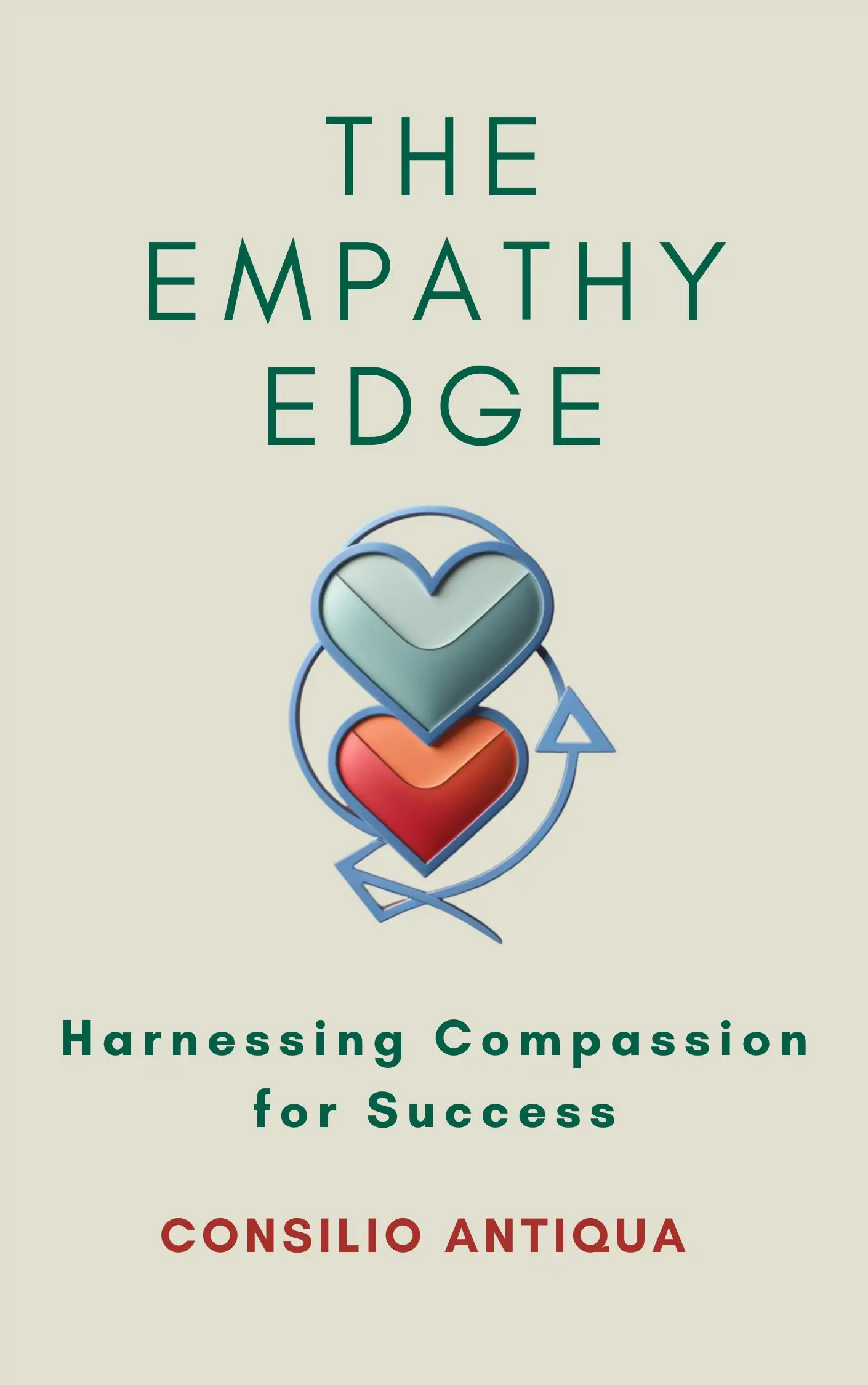
The Empathy Edge | Chapter 18: Cultivating Personal Empathy
Chapter 18: Cultivating Personal Empathy
Picture this: You're in line at the grocery store, and the cashier is having a rough day. Maybe they're flustered, or a customer just gave them a hard time. Do you add to their stress with an impatient sigh? Or do you offer a kind smile and a little patience?
That, my friend, is empathy in action. It's about stepping into someone else's shoes and getting a feel for what they're going through. It's about recognizing that we're all human, and we all have our ups and downs.
Being Present: Your Empathy Superpower
Ever notice how when you're truly present, you're more tuned in to the people around you? Mindfulness, that whole paying-attention-to-the-now thing, is like a secret weapon for building empathy. When we're not lost in our own thoughts or glued to our phones, we're more likely to pick up on those little cues that tell us how someone is feeling. A tired sigh, a nervous laugh, even the way someone is standing can give us clues about their emotional state.
Think about it: When you're fully engaged in a conversation, you're not just hearing the words, you're noticing the tone of voice, the facial expressions, the whole shebang. And that's where the magic of empathy happens – when we connect with someone on a deeper level.
Flexing Your Empathy Muscles: Exercises for Understanding
Walk a Mile in Their Moccasins:
- Rewind and Reflect: Think about a time when you felt totally misunderstood. Now, put yourself in the other person's shoes. What might have been going on in their world? What might have led them to act the way they did?
- Role Play It Out: Imagine a disagreement you had with a friend or family member. Now, act out both sides of the conversation, really trying to embody each person's perspective. It's like a mini-acting class for your empathy skills!
Listen Like You Really Care:
- Ditch the Distractions: When someone is talking to you, put down your phone, make eye contact, and really listen. It's amazing how much more you can pick up on when you're fully present.
- Ask Away: Don't be afraid to ask clarifying questions. It shows you're genuinely interested in understanding their point of view.
- Mirror, Mirror: Try summarizing what you've heard to make sure you're both on the same page. It's like saying, "Hey, I'm really trying to get where you're coming from."
Emotional Smarts: Your Empathy Toolkit
Emotional intelligence, or EQ, is all about understanding and managing your own emotions and the emotions of others. It's a key ingredient in the empathy recipe. When you're emotionally intelligent, you're better at recognizing, understanding, and responding to the feelings of those around you.
Here's how to boost your EQ:
- Know Thyself: Pay attention to your own emotions. Notice how they affect your thoughts and actions. It's like becoming your own emotional detective.
- Master Your Emotions: Learn healthy ways to manage your feelings. Deep breaths, mindfulness exercises, or even a good workout can help you stay calm and collected.
- Practice Empathy Daily: Make a conscious effort to listen to others and understand their perspectives. The more you practice, the better you'll get at it.
Empathy isn't just some fluffy feel-good thing. It's a superpower that can help us build stronger relationships, navigate conflicts like a pro, and create a world where everyone feels seen and heard. By practicing mindfulness, flexing our empathy muscles, and boosting our emotional intelligence, we can all become masters of understanding and connection.
Your Empathy Challenge: A Walk in Someone Else's Shoes
Think about a recent interaction where you felt misunderstood or frustrated. It could be with a colleague, a family member, a barista – anyone! Jot down a quick summary of what happened, including your own thoughts and feelings.
Now, here's the challenge: Imagine you're the other person in that situation. What might they have been thinking and feeling? What might have motivated them to act the way they did? Write down your observations from their perspective.
This exercise is like a mental workout for your empathy muscles. It helps you see things from a different angle and build your ability to connect with others on a deeper level. Give it a try, and see how it changes your perspective!
